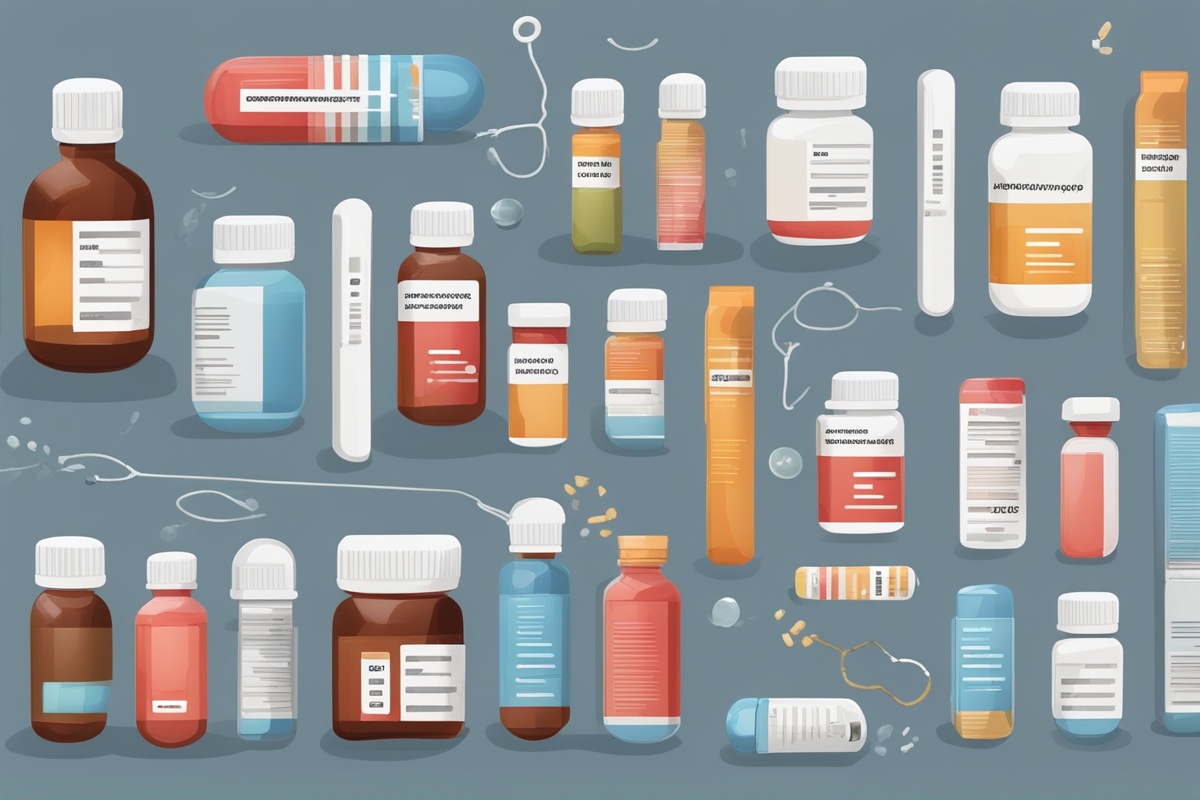Let’s face it: when you’re hit with an infection, the knee-jerk reaction is often to reach for a prescription antibiotic. It’s quick, it’s convenient, and, frankly, it’s what most of us have been conditioned to trust. But what if there’s another way? What if, instead of relying on synthetic drugs that can come with side effects or contribute to antibiotic resistance, you could turn to natural therapies instead of prescription antibiotics? I’m not saying antibiotics don’t have their place—sometimes they’re lifesavers—but I’ve seen firsthand how nature’s remedies can often step up to the plate for milder infections or as complementary support. Imagine you’re dealing with a nagging sinus infection or a stubborn cut that just won’t heal. Before you rush to the pharmacy, let’s explore some powerful, time-tested alternatives that might just surprise you.
Why Consider Natural Therapies Over Antibiotics?
Antibiotics are incredible when you’re facing a serious bacterial infection, but they’re not without downsides. Overuse has led to a global crisis of antibiotic resistance—bacteria are evolving faster than our drugs can keep up. According to the World Health Organization, this is one of the biggest threats to modern medicine. On a personal level, I’ve had friends who’ve dealt with gut issues after a course of antibiotics wiped out their good bacteria along with the bad. Natural therapies, on the other hand, often work more gently, supporting your body’s defenses without the collateral damage. They’re not always a complete replacement—let’s be clear about that—but for minor infections or preventative care, they can be a game-changer. So, why not give your body a chance to fight naturally before pulling out the big guns?
Herbal Allies: Nature’s Antibacterial Powerhouses
If you’ve ever sipped on ginger tea to soothe a sore throat, you’ve already dipped your toe into the world of herbal medicine. But some herbs go way beyond comfort—they pack a serious antibacterial punch. Take garlic, for instance. It’s not just for warding off vampires; studies have shown that allicin, a compound in garlic, can inhibit bacterial growth. I remember a time when I felt a cold coming on, and instead of reaching for over-the-counter meds, I crushed a clove of garlic into some honey and swallowed it down. It wasn’t exactly gourmet, but within a day, I felt the edge taken off. Other heavy hitters include oregano oil, with its potent carvacrol content, and echinacea, often used to boost immunity and fight infections. These herbs aren’t just folklore—research from places like the University of Maryland Medical Center backs their antimicrobial properties. Just remember, quality matters. Always source from reputable suppliers, and consult with a healthcare provider if you’re unsure about dosages or interactions.
Essential Oils: A Concentrated Dose of Healing
Essential oils have exploded in popularity, and for good reason. Oils like tea tree, lavender, and eucalyptus have well-documented antibacterial and antiviral properties. A few years back, I had a small cut on my hand that started looking a little angry—red, swollen, the works. Instead of heading straight for antibiotic ointment, I diluted a drop of tea tree oil with coconut oil and dabbed it on. Within 48 hours, the redness was down, and it healed without a hitch. Studies, such as those published by the National Institutes of Health, support tea tree oil’s effectiveness against bacteria like Staphylococcus aureus. But here’s the rub: essential oils are potent. Never apply them undiluted to your skin, and don’t ingest them unless under the guidance of a certified aromatherapist. Used wisely, they’re a fantastic tool in your natural therapy toolkit.
Probiotics and Diet: Healing from the Inside Out
Ever heard the saying, “You are what you eat”? When it comes to fighting infections naturally, your diet plays a starring role. Probiotics—those friendly bacteria found in yogurt, kefir, and fermented foods like sauerkraut—help balance your gut microbiome, which is ground zero for your immune system. After a round of antibiotics left me feeling sluggish a few years ago, I started incorporating more fermented foods into my meals. It wasn’t overnight magic, but over weeks, I noticed better digestion and fewer colds. On top of that, foods rich in vitamin C, like citrus fruits, and zinc, like pumpkin seeds, can supercharge your body’s defenses. Think of it as building a fortress from the inside. If antibiotics are a sledgehammer, a nutrient-dense diet and probiotics are the steady hands reinforcing your walls. Why not start small—maybe add a spoonful of kimchi to your next meal—and see how your body responds?
Lifestyle Tweaks: Supporting Your Body’s Natural Defenses
Sometimes, the best natural therapy isn’t a remedy you ingest—it’s a change in how you live. Stress, lack of sleep, and dehydration can tank your immune system faster than you’d think. I learned this the hard way during a particularly hectic work season. I was burning the candle at both ends, and sure enough, I caught every bug going around. Once I prioritized eight hours of sleep and started sipping water throughout the day, my body bounced back quicker. Simple practices like regular handwashing, moderate exercise, and even spending time in nature can bolster your resistance to infections. Have you ever noticed how a walk in the woods just makes you feel… cleaner? There’s science behind that—exposure to natural environments can lower stress hormones and boost immunity. Pair these habits with natural therapies, and you’ve got a solid line of defense without a prescription in sight.
When to Draw the Line: Knowing When Natural Isn’t Enough
Let’s keep it real: natural therapies instead of prescription antibiotics aren’t a cure-all. There are times when modern medicine is non-negotiable. If you’ve got a high fever, severe pain, or symptoms that worsen despite natural interventions, don’t play the hero—see a doctor. I’ve had moments where I tried to tough out an infection with herbs, only to realize it was spreading. A quick trip to the clinic and a short course of antibiotics got me back on track. The key is balance. Natural therapies can be incredible for prevention, mild cases, or as a complement to conventional treatment, but they’re not a replacement for professional care in critical situations. Always listen to your body, and when in doubt, get a second opinion. After all, isn’t your health worth the extra caution?
References
- University of Maryland Extension – Garlic (Allium sativum)
- Missouri Botanical Garden – Plant Finder
- University of Minnesota Extension – Growing Garlic
- Royal Horticultural Society – Growing Echinacea
- New York Botanical Garden – Herbal Medicines
Disclaimer: This article is for informational purposes only and is based on general research, personal experiences, and insights gathered from reputable sources. It is not intended to serve as a substitute for professional medical advice, diagnosis, or treatment. Natural therapies can be beneficial, but they are not always appropriate for every situation or individual. Always consult a qualified healthcare provider or medical professional for personalized guidance, especially if you have underlying health conditions, are pregnant, or are taking other medications. Your health and safety are paramount, and decisions about treatments should be made with expert input tailored to your specific needs.
This content is for informational purposes only and not a substitute for professional advice.



